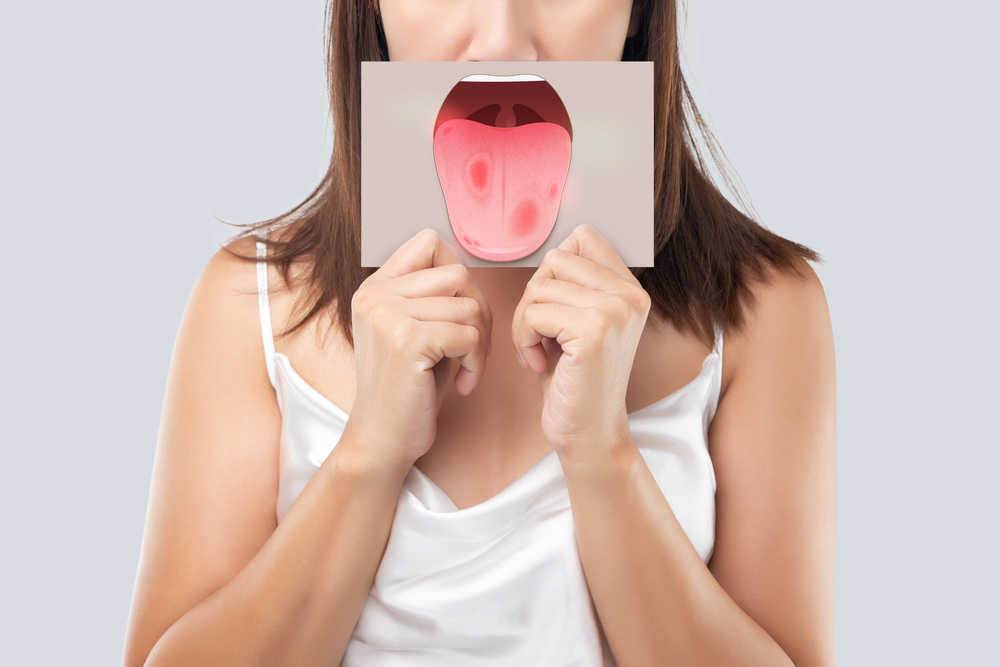Why Your Tongue Health is Just as Important as Your Teeth

When it comes to oral health, most of us think about our teeth. We brush, floss, and use mouthwash to keep them clean and our smiles bright. However, there’s another important part of our mouth that we often overlook: our tongue. Your tongue does more than just help you taste and chew food. It plays a key role in your overall oral health and can even indicate your general health. Taking care of your tongue is just as important as taking care of your teeth. Let’s explore why tongue health matters and how you can keep your tongue healthy and happy.
Why Your Tongue Matters
Your tongue does a lot more than you might think. It helps you speak, taste, chew, and swallow. It also helps keep your mouth clean. As you move your tongue around, it removes food particles and bacteria from your teeth and gums. In a way, your tongue acts like a natural toothbrush. However, just like your teeth, your tongue can collect bacteria, food debris, and dead cells. If you don’t care for your tongue, these can lead to bad breath and other oral health problems.
A healthy tongue is usually pink and covered with tiny bumps called papillae. If your tongue changes in color, texture, or appearance, it could mean something is wrong. Paying attention to these signs can help you catch potential health issues early.
Common Tongue Problems
Several common issues can affect the health of your tongue. Knowing about these problems can help you prevent them or address them if they arise:
- White Coating: A white coating on the tongue can be due to a buildup of food debris, bacteria, and dead cells. This might cause a condition called oral thrush, a yeast infection that shows up as a white, creamy coating on the tongue and inner cheeks. Oral thrush is more common in people with weakened immune systems, diabetes, or those who wear dentures.
- Sores and Ulcers: Sores or ulcers on the tongue can happen from accidentally biting it, eating hot food, or irritation from braces or sharp teeth. While these sores usually heal on their own, recurring sores should be checked by a dentist, as they could be a sign of a more serious issue.
- Black Hairy Tongue: Despite its scary name, this condition is usually harmless. It results from a buildup of dead skin cells on the papillae, which trap bacteria, food, and tobacco, giving the tongue a dark, furry look. Good oral hygiene can help prevent and treat black hairy tongue.
- Geographic Tongue: This condition causes smooth, red patches on the tongue surrounded by white borders. The patches can change shape and location, making the tongue look like a map. Geographic tongue is harmless but can sometimes cause discomfort or sensitivity to certain foods.
- Bad Breath: Bad breath, or halitosis, can be caused by bacteria on the tongue. When these bacteria break down food particles, they release sulfur compounds, leading to an unpleasant smell. Regularly cleaning your tongue can help reduce bad breath and keep your mouth fresh.
How to Keep Your Tongue Healthy
Taking care of your tongue is simple and can easily be added to your daily oral care routine. Here are some easy tips:
- Brush Your Tongue: Just like your teeth, your tongue needs to be brushed daily. Use your toothbrush or a tongue scraper to gently clean the surface of your tongue. Start at the back and work your way forward, using gentle pressure to remove bacteria, food particles, and dead cells.
- Stay Hydrated: Drinking water throughout the day helps wash away food particles and bacteria from your mouth, including your tongue. Staying hydrated also helps prevent dry mouth, which can lead to an unhealthy tongue and bad breath.
- Use Mouthwash: An antimicrobial mouthwash can help reduce bacteria in your mouth, keeping both your tongue and teeth healthier. Choose a mouthwash that is alcohol-free to avoid drying out your mouth.
- Eat a Balanced Diet: A diet full of fruits, vegetables, and whole grains supports overall health, including your oral health. Fiber-rich foods, like apples and carrots, can help clean your tongue and teeth naturally by boosting saliva production and reducing bacteria buildup.
- Avoid Tobacco: Smoking and other tobacco use can harm your tongue and raise your risk of oral cancer. Quitting tobacco is one of the best things you can do for your oral health and overall well-being.
- Regular Dental Visits: Seeing your dentist regularly is essential for good oral health. A dentist can check your tongue for signs of problems and give advice on how to care for it. If you’re looking for a dentist in Edmonton, choose one who values comprehensive oral care, including tongue health.
Don’t Forget Your Tongue
Your tongue is a key part of your oral health, and taking care of it is just as important as caring for your teeth. A healthy tongue not only helps keep your mouth fresh and clean but also prevents a range of oral health issues. By adding tongue care to your daily routine and watching for changes in its appearance, you can keep your mouth healthy and enjoy all the benefits of good oral hygiene.
If you’re in Edmonton and looking for a dentist who cares about every aspect of your oral health, including your tongue, consider visiting Oliver Family Dental. They are dedicated to helping you maintain a healthy smile in every way possible.








